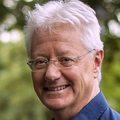Is Confucianism a Religion or a Secular Moral System?
DOI:
https://doi.org/10.21036/LTPUB10243Researcher
Peter van der Veer is Director of the Max Planck Institute for the Study of Religious and Ethnic Diversity in Göttingen (Germany). He previously taught anthropology at universities across the Netherlands and the University of Pennsylvania. Van der Veer has been a visiting professor at cutting edge universities in the field of the social sciences, such as the New School in New York, the University of Chicago, and the Ecole des Hautes Etudes en Science Sociales Paris. Van der Veer’s ethnographic interests are nationalism and religion in Asia and Europe. His most recent work focuses on religious nationalism in India and China. Particularly, van der Veer sheds light to the everyday practice of Confucianism in today’s China.

Original Publication
Is Confucianism Secular?
Peter van der Veer
Published in
Citation
Peter van der Veer,
Latest Thinking,
Is Confucianism a Religion or a Secular Moral System?,
https://doi.org/10.21036/LTPUB10243,
Credits:
© Peter van der Veer
and Latest Thinking
This work is licensed under CC-BY 4.0
